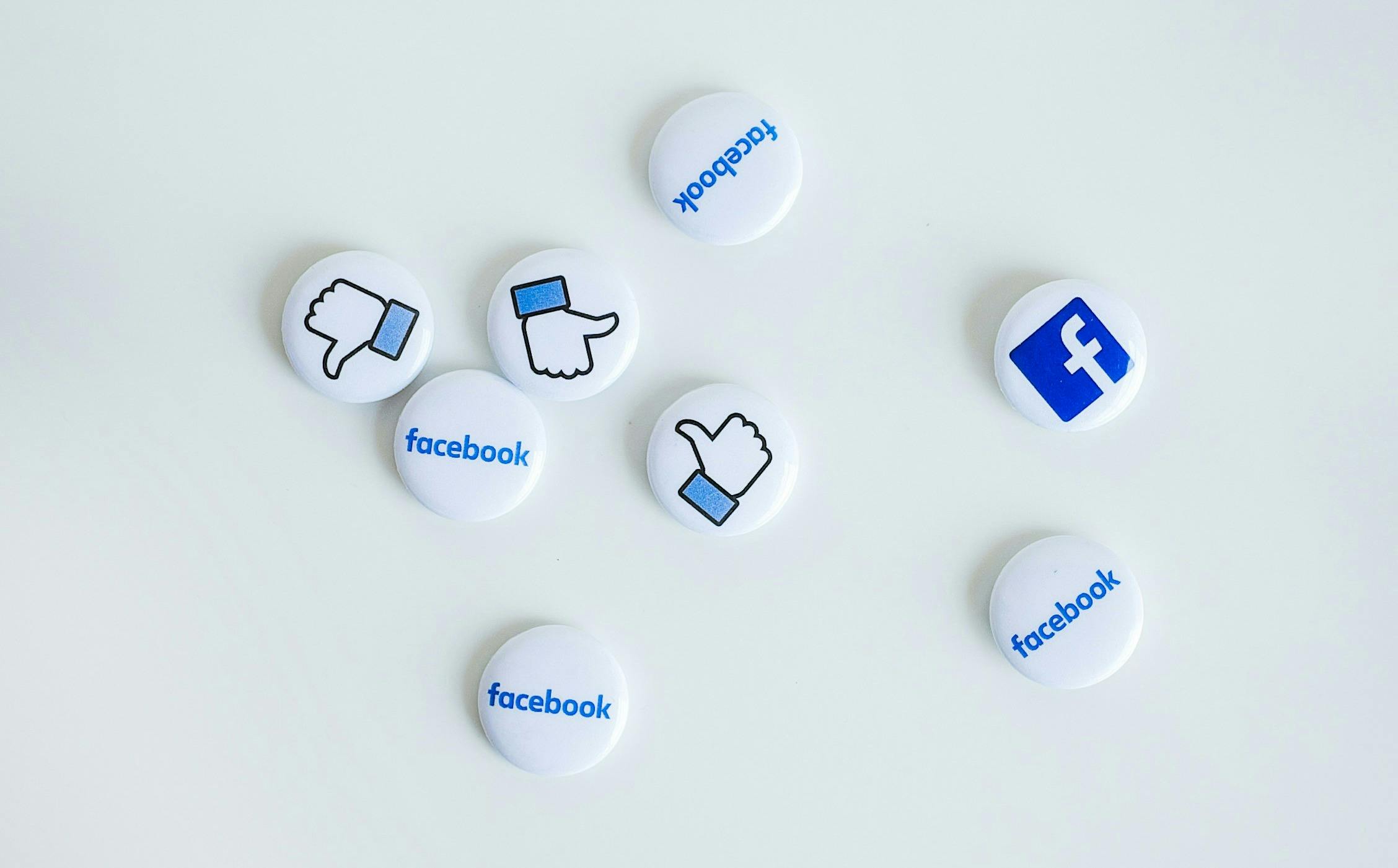February of 2009 was a month that changed the course of human history—where one event led to a lie planted in my heart that ruled me for years. I eventually found hope and freedom, but it started with recognizing the game I was unknowingly playing.
Also, yes—that year, the Pittsburgh Steelers won the Super Bowl over an aging Kurt Warner and his Arizona Cardinals, Heath Ledger posthumously won Best Supporting Actor for his portrayal as the Joker in The Dark Knight, and Kelly Clarkson’s “My Life Would Suck Without You” was at the top of every chart. All are worth noting, but none are the event I’m referring to:
The introduction of Facebook’s ‘like’ button—what I believe would incite a cataclysmic tidal wave in social culture that still makes ripples today, connecting the planet in a way never seen before, yet all the while laying the foundation for our insecurities to be meddled with.

Competition vs Connection
Before the ‘like’ button inception, one would see social media updates such as “Just mowed the lawn,” “Twighlight was overrated,” or “I miss spicy nuggets” (which did help Wendy’s bring them back). But instead of countless ‘thumbs up’ icons spilling affirmation onto said posts, what would soon transpire was a scraggly mess of comments ranging from “Awesome!” to “Agreed” to “I miss when the double stack was 99 cents…” (me too, Uncle Mike).
From February of 2009 and beyond, though, Uncle Mike could now summarize his inflation-affected fast-food displeasure in a simple and time-efficient manner: merely liking the post. So commenced an era of social media that felt more like competition than it did connection, and where a lie started to take its roots in our culture.
The feeling of the ‘likes’ tallying up was irresistible, and to me, the game became simple: figure out what others tend to ‘like,’ construct posts in a matching fashion, and ingest the sweet endorphin of that red (or orange) heart symbol that told me I was…well, liked.
I paid attention to what “did well” on my feed, what time of day or day of the week a post would get the most eyeballs, and how long after something was posted I could delete it if it didn’t receive the amount of ‘likes’ I was hoping for without too many people noticing (I know I’m not the only one).
After a while, though, I remember getting to a low-esteem space regarding social media. I can’t recall if it was a few average-performing Instagram posts in a row or if I was feeling especially introspective, but I had begun to feel consistently judgemental toward other friends’ updates I’d see on my feed. I’d also become increasingly stressed if I weren’t getting the attention on a post I thought I deserved and was up to an embarrassingly high amount of screen time on all the apps. (My phone may have overheated once.)
The Lie Behind the ‘Like’
My notification-chasing overload eventually transpired into a moment of sobriety. I realized that beneath all the highs and lows I was feeling in regards to my platforms, there was a lie that I had bought into:
To be consistently liked and affirmed by others was the path to a full life.
For me, that path’s name was Instagram, X (then-Twitter), Facebook, and BeReal. (I also tried to become Vine famous for one week in 2012.) What better way to be liked than to see others literally ‘like’ what I’m doing? The dopamine hit felt good, and I wanted more.
To be clear, the lie was not that being liked or affirmed was bad or that even desiring to be was wrong. After all, God did say it was not good for us to be alone, and the Bible does say that gracious words are sweet to the soul and healthy to the body. But for me, the method to fulfill those desires was becoming cheapened by every day (or ‘like’) that passed.
I loved the highs of the praise I received by counting the ‘likes.’, but I was getting more anxious and saddened when those ‘likes’ were, by my standards, “low.” If it had been “too long” since I made a post, I found myself seeking opportunities to do something in my life that was post-worthy, or, ‘like’-worthy, rather than something I really wanted to do.
The more I was drawn to the ‘likes’ themselves, the more I needed them. It was a machine I had to keep paying consistently in order to feel stabilized. The growing reality that I could only feel good with social media (and sometimes, myself) when I was simultaneously feeding my accounts drove me up a wall. I couldn’t enjoy my friends’ posts or post myself for fun anymore, and when I was doing something fun in life, I was often thinking about how I could post about it later.
In short, I had committed to the game and was paying the toll.
While this all may feel like a dramatized reflection (I am an Enneagram Four, after all), it may not be untrue for many of us. Studies show that getting fewer ‘likes’ than others on social media can negatively impact one’s health amongst adolescents.
But I hadn’t noticed these issues for years—especially when it was such a normal thing amongst friends and in culture. It felt a bit weird and lonely if I wasn’t active on social media, keeping up with who was getting engaged and who just got a new job, or letting others know if those things were happening in my life. I had become convinced that the anxiety around it all was a part of the sacrifice I had to make to truly enjoy social media.
The likes of Gandalf and, even more so, Gollum knew full well the draw of earthly praise and recognition as told by J.R.R. Tolkien in The Lord of the Rings:
‘What do you mean?’ said Frodo. ‘Surely the Ring was [Gollum’s] Precious and the only thing he cared for? But if he hated it, why didn’t he get rid of it, or go away and leave it?’
‘You ought to begin to understand, Frodo, after all you have heard,’ said Gandalf. ‘He hated it and loved it, as he hated and loved himself. He could not get rid of it. He had no will left in the matter.’
The lie had become as visible as ever for me; I was tired and ready to find a way out.
A Way Out
I was soon struck by the character of Jesus and how he pursued the idea of being ‘liked’ in his days on earth. Though He was God in the flesh with every right to seek his own glory, he constantly ran from the praise of crowds, made choices that received criticism from his friends, and was silent when strangers spoke falsely of him in public.
“…just as the Son of Man did not come to be served, but to serve, and to give His life as a ransom for many”. (Matthew 20:28)
How could Jesus act in such confidence? How could He be so comfortable to deny worldly affection? Perhaps we can attribute it to uttermost confidence in being loved by God the Father and the freedom it gave him to forsake the worries, cares, and reputation of his own life:
“As the Father has loved me, so have I loved you.” (John 15:9)
Scripture tells us of a man in Jesus who clearly desired connection with people (coming down to earth as God to love his people) but had no stress or worries about being liked. With every reason to receive affirmation, Jesus instead chose to lift up and serve others—and had more life and contentment than anyone in history.
By pursuing such praise through ‘likes’ in such an innocent but competitive way, I knew that deep down, I was serving myself. And that path was exhausting.
The Hope Behind the ‘Like’
To combat the lies I saw in my mind and actions, I started by taking a hiatus from different platforms: sometimes days, weeks, and months at a time. By doing so and filling the newly lacking affirmation with the way Jesus feels toward me, I began to find peace that I honestly thought was impossible.
It wasn’t an overnight change. For quite some time, I found myself re-downloading apps with a thousand reasons at hand as to why it was silly of me to take a break in the first place. But over time, I saw the grips of the lies loosen: I didn’t need the guy in my eighth-grade history class to know that I went to a Monday Night Football game or climbed a volcano. He probably didn’t want to really know, either.
If I became afraid of missing out on different friends’ updates in life or wanted to share my own news, I started calling, texting, or seeing them more. If I wasn’t close enough with someone to take the step to reach out to them personally, then I probably wasn’t close enough to them in the first place to want to have them constantly seeing my life updates on their feed.
Presently, I have a barebones Facebook account to find bed-bug-free couches on Marketplace and a burner Twitter/X account where I follow sports and memes. Overall, the anxiety and stress in the social media world have vanished for me. The momentary thrill of receiving ‘likes’ has vanished, too, but for what I believe to be a worthy cause.
But this is just my story. I know some friends who are entirely absent from all social apps, and some who post round-the-clock life updates—and both sides are doing alright in their own respects. We all have specific temptations that nag at us, and I believe it’s up to us how seriously we want to take them and how badly we want God to help us find freedom in.
Unlike the one ring to rule them all, though, I don’t think social media is evil in and of itself. Getting to promote work I’ve done or connect with a friend from a different continent would be a bit more difficult if not for it. But if all brands unanimously decided to remove the ‘like’ button from their platforms, how much less active would we all be on them?
The lie that governed me for years was that I needed a constant thumbs-up from those around me to feel satisfied and content. And the hope I was led to by God was that my worth in him was the only affirmation my soul truly needed. Mark Zuckerberg, eat your heart out.
Disclaimer: This article is 100% human-generated.
Reflections to share? Got an idea for an article? Email us at articles@crossroads.net
At Crossroads, we major on the majors and minor on the minors. We welcome a diverse community of people who all agree that Jesus is Lord and Savior, even if they view minor theological and faith topics in different ways based on their unique experiences. Our various authors embody that principle, and we approach you, our reader, in the same fashion. You don’t have to agree with every detail of any article you see here to be part of this community or pursue faith. Chances are even our whole staff doesn’t even agree with every detail of what you just read. We are okay with that tension. And we think God is okay with that, too. The foundation of everything we do is a conviction that the Bible is true and that accepting Jesus is who he said he is leads to a healthy life of purpose and adventure—and eternal life with God.












